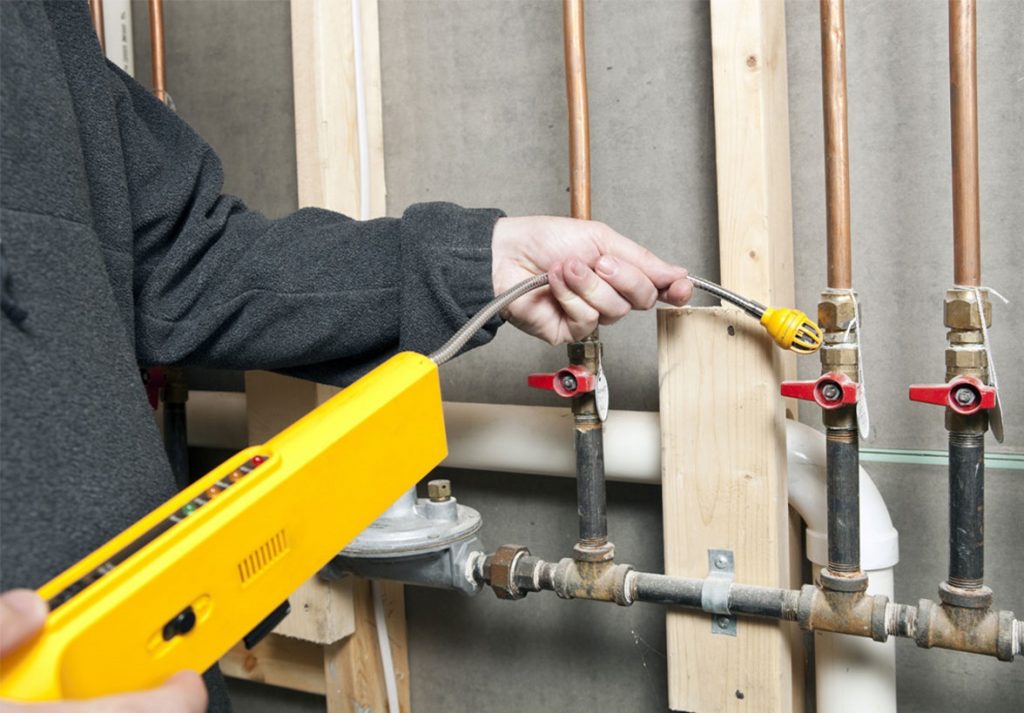
While natural gas is a dangerous material, it is also something of a common household feature for many homes across Australia. If handled by a licensed gas plumber in Perth, the systems powered by natural gas on your property should be safe. Unless there is a gas leak at hand which can be potentially hazardous and require immediate professional help. We’ll explain some things to help you navigate everything involved with instances of gas leaks below including knowing how to detect them and the steps that a professional will take to repair them.
Natural gas comes from the earth’s surface, and it is highly resourceful for various energy requirements across the household. Gas is made up of some dangerous particles including methane and other natural gas liquids. Homes with access to a gas line can use it for many aspects of their home from their high-quality hot water units to a powerful backup generator. Leaks happen when the line or the equipment the line is linked to instances where gaps pop up where the fumes can escape. The fumes will naturally leak out into open areas and be in direct contact with everyone on the premises. Leaks are more likely to happen with old gas lines that are more vulnerable to the effects of corrosion or wear and tear. The outer material will have worn away over time and this is exactly where small hairline fractures occur, creating leakage points for the gas. It is the methane present in gas that is dangerous if you are directly exposed to it, and it can cause a whole host of problems. Even though the gas is non-toxic, leaks can cause dizziness, headaches, and other physical reactions if it leaks in confined spaces. The gas is also flammable and if enough of it escapes there is a serious risk of combustion.
The only way to keep all of this at bay is to keep up with routine maintenance on all the equipment that uses gas, such as stoves, fireplaces, and furnaces. A professional maintenance plumber can do the important work of checking for signs of corrosion, breakage, warping, and damage on your gas lines. Should there be any issues of concern, the plumber can quickly work away at making repairs before a full gas leak occurs. Outside of regular maintenance, it is also important to invest in gas leak detection and inspection regularly. Your local professional plumber has the best expert understanding of your unique gas usage and can provide personalized recommendations for any repairs or installations you may need.
Unless you are properly licensed to do so, you cannot fix a gas leak on your own. Your job is to stay alert for any signs that a leak may be at hand and then you should call in a professional to fix the leak as soon as possible. There is professional government advice about handling leaking gas but we’ll do our best to explain below.
If you suspect a gas leak is happening, you should try to shut off the gas at the line source. This is to prevent further leakage but cannot help much to reduce the fumes that have already escaped and collected on the premises. Try to vacate the premises quickly and as calmly as possible.
Now that you’ve done what you could, it is time to call in a professional to do the work of dealing with the leak in the safest way possible. They will find the true source of your gas leak and do the work of carrying out the relevant repairs. This is the best way to fix a gas leak. Your job is to look out for any signs that a gas leak may be at bay but do not put yourself at additional risks trying to test, locate or fix the gas leak. Knowing how to detect a gas leak is the most essential part for the safety of the people and property on your premises and it helps the licensed expert to quickly do the work of preventing any dangerous situation.
There are some pretty obvious signs that a gas leak may be at play and if you notice them at an unordinary time then you should call in a professional immediately. Signs can include the following:
Sulphur smells the same as rotten food and it is immediately noticeable. Sulphur is an active ingredient in gas and if you smell it while you’re nowhere near the stove or fridge, it may be a sign that a leak is occurring.
Random whistling or hissing sounds near your gas line may also be a sign that you have a substantial leak happening. If you are able to hear the gas escaping the gas line, then that means it is doing so at a rapid rate and needs professional help as soon as possible.
Soapy water is a brilliantly simple way to check for leaks of any type. Whether it is a puncture in your tyre or a gas leak, you can perform this quick and easy test to see if there is an issue at hand. Mix up soapy water and apply it to the area that you suspect is leaking. If you spot any bubbles, this is usually a sign that some kind of material is quickly rushing to exit or leaking.
While you can only suspect that a gas leak has occurred, a professional can confirm it faster because they have the experience and equipment to do so. Contact a trusted expert and licensed gas operator and they can quickly determine the source of the problem and correct it.

Historic Plumbing is a family-run plumbing company helping Perth residents with their plumbing and gas fitting problems for more than 10 years.